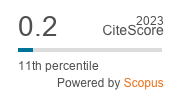Challenges of Monitoring Obligations in the European Union’s Digital Services Act
DOI:
https://doi.org/10.54148/ELTELJ.2024.1.45Keywords:
digital services, Digital Services Act, DSA, monitoring obligations, providers of intermediary services, PIS, E-commerce Directive, ECDAbstract
The article argues that the Digital Services Act, as part of the EU’s broader attempt to regulate intermediary services providers in a constantly growing and challenging technological, social and political environment, does not provide a final and comprehensive solution to the issue. The Digital Services Act appears inconsistent with the previous case law of European supranational judiciary forums regarding the prohibitionofgeneralmonitoringbyintermediary services providers.Infact,itprovides the Member States with vaguely worded regulatory exceptions in the event of a ban on general monitoring. However, the Digital Services Act can be seen as a legitimate and necessary attempt to enforce the regulation at the European level through Member States while at the same time giving a unique regulatory position in specific cases to the European Commission or pan-European legal bodies in general. Finally, the Digital Services Act also turns initial enforced self-regulatory attempts to regulate social harms, possibly caused by intermediary services providers, into co-regulation.



